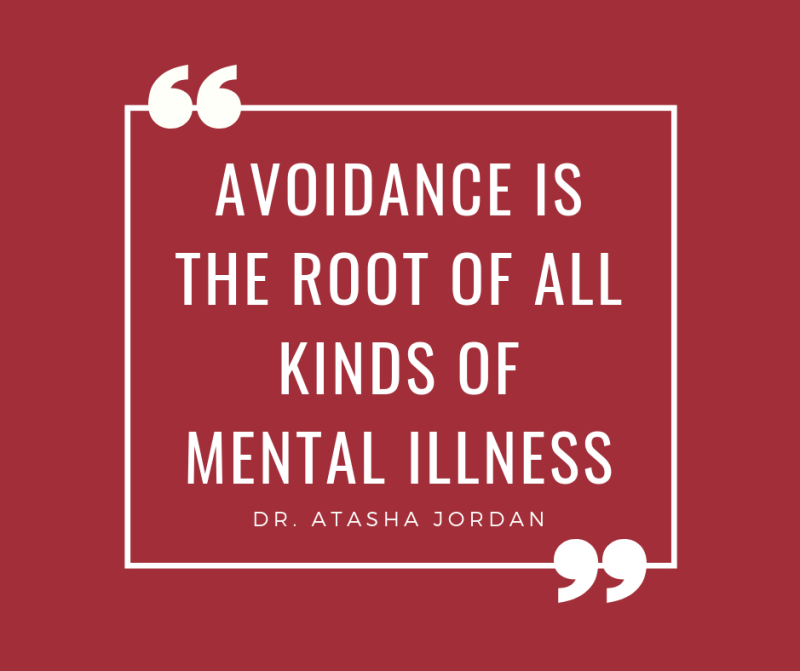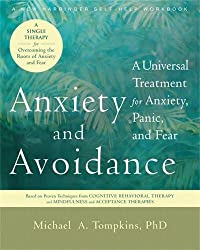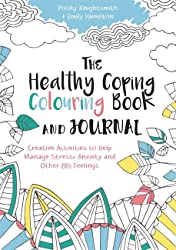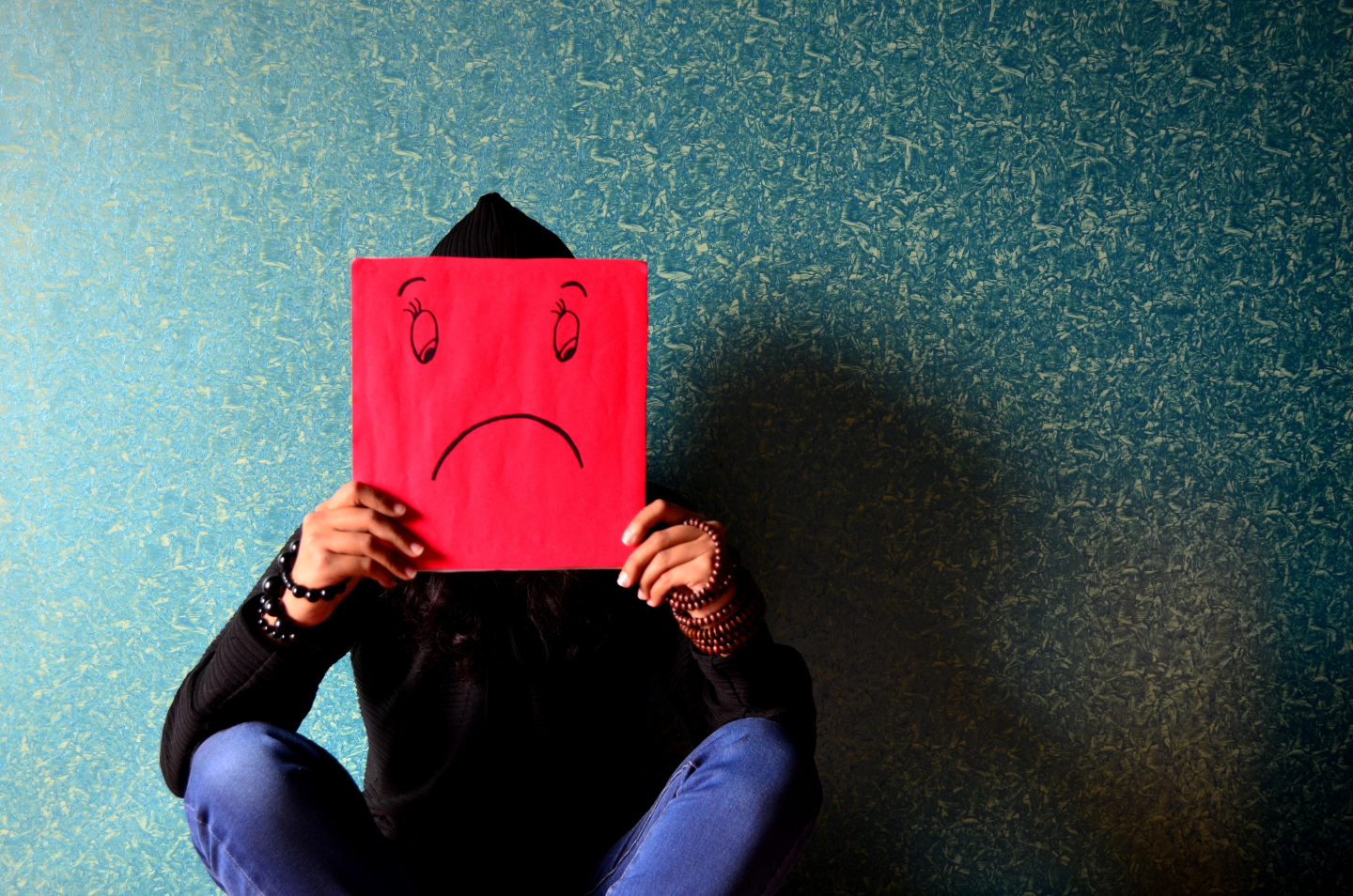Whether it’s your schoolwork, an ex-partner, or past trauma, there are likely some things you’re avoiding in life. Sometimes this avoidance is subconscious. At other times, the avoidance is completely purposeful. Either way, you might not even realize it, but these things you’re avoiding are likely making you miserable. Even more alarming, the avoidance might lead to mental illness.
On my current psychiatry block in residency, the attending I’m working with said something that stuck with me. “Avoiding” he said, “is at the root of most psychiatric disorders.” As I spent time reflecting on these words, I realized that he was right. The Bible says, “The love of money is the root of all kinds of evil.” Turns out, in the field of psychiatry and mental health, avoidance is the root of all kinds of mental illness.

1. AVOIDING TRAUMA AND STRESSORS CAN LEAD TO ADDICTION
If past trauma and stressors are things you’re avoiding, let me first say, I’m sorry. Sadly, millions of people around the world have experienced trauma in the form of adverse childhood events, sexual abuse, military trauma, domestic partner violence, and much more. Even more people, and maybe all of us, experience daily stressors. Paying bills, caring for family members, finding employment, and accessing affordable healthcare are just a few of the stressors that we all face at one point or another. The question I posed to you is this: Do you avoid your past trauma and stressors, or do you address them head-on?
Avoidance of trauma and other stressors comes in many forms, but one of the most common is substance use. Substances like alcohol, marijuana, cocaine, and ecstasy often provide a temporary escape for those who use them. However, once the intoxication fades, what’s left is the reality that past trauma still haunt us and our stressors haven’t resolved. For instance, it’s not uncommon to grab a drink with friends or co-workers after a hard day at work. But if the stress of your job is ongoing, and you regularly turn to alcohol as a way to decompress, you’re likely avoiding the root of the issue – the stress of your job. Sooner or later, in this and numerous other examples, avoiding trauma or stressors can ultimately lead to substance use disorders before you know it.
2. AVOIDING PEOPLE, PLACES, AND THINGS CAN LEAD TO ANXIETY
Anxiety is defined as “a feeling of worry, nervousness, or unease, typically about an imminent event or something with an uncertain outcome.” By avoiding people we dislike, places that trigger uncomfortable feelings, or things that are uncertain, we open ourselves up to opportunities for anxiety to creep in. I’m the first to say “protect your space” when it comes to the people in your circle. However, there’s a difference between avoiding people and purposefully removing them from your life. When we simply avoid people, we open ourselves up to fears of unplanned or awkward run-ins. When we protect our space from negative influences, we purposefully choose not to interact with negative people, places, or things and create boundaries to ensure that future interactions do not take place. The difference between avoiding and removing people in our lives is subtle, but it’s important. The former leads to anxiety, while the latter can create inner peace.
The same is true for places and things. Avoidance creates uncertainty. Worrying about that uncertainy leads to anxiety. So, stop and think about what (or who!) you might be avoiding in life. Facing that person or situation head-on might be exactly what you need to do to feel better!
3. AVOIDING NEGATIVE EMOTIONS CAN LEAD TO DEPRESSION
Managing negative emotions is not easy. Negative emotions can be uncomfortable or downright scary. Negative emotions can make it difficult for you to function at your usual capacity throughout the day, or they can even keep you curled up in bed. Often times, we avoid our emotions instead of facing them. What we fail to realize, however, is that in attempting to sweep our feelings under the rug, we often create stores of negativity that ferment over time.
The graphic below shows an example of how unaddressed negative emotions can lead to depression. interestingly, the graphic also highlights that depression can evolve from failure to appropriately process positve events as well. As such, processing our emotions is an integral component of a journey toward spiritual, emotional, mental, and physical wellness.

******************************
On the path to holistic wellness, it’s important to assess what things you’re avoiding in your life. Trauma, stressors, people, places, things, and emotions can all be challenging to face. However, by not confronting these issues directly, you open yourself up to unhealthy cycles, negative thoughts, and even mental illness. Though mental illness isn’t always avoidable due to genetic predisposition, there are certainly ways for you to reduce your risk of having a mental illness.
As a start, addressing issues head-on is typically a good first step. This can begin by sharing your experiences with a trusted friend or family member. Next, consider speaking with a therapist. Many therapists are trained in therapy modalities like Cognitive Behavioral Therapy (CBT) which is an evidence-based treatment of PTSD, anxiety, and more. If your therapist believes that you might benefit from psychiatric medications, they will refer you to a psychiatrist. In the midst of this all, the most important thing to remember is that to help reduce the chances of developing a mental illness, it’s essential that you address, not avoid, traumas, stressors, and negative emotions, people, places, and things.
RECOMMENDATIONS FOR FURTHER READING:




This informational post is not intended to diagnose or treat. The above books are suggested readings and not formally endorsed by Dr. Atasha Jordan.






